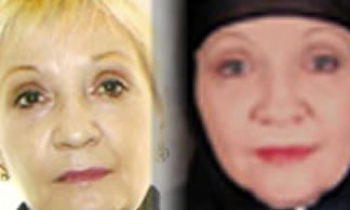Jordan has endorsed controversial press and publication legislations that would slap heavy fines and prison terms on journalists for violations including slander and religious defamation. Journalists can now be convicted of defaming religions protected under the constitution or offending religious prophets in writing or in drawings.

Journalists operating in the kingdom could face fines of up to 10,000 Jordanian dinars (US$14,114, €10,722) and prison terms ranging from one day up to three years for violations of the legislation.
Journalists can also be found guilty if their writings are viewed as an insult to religious sentiments or incite sectarian strife and racism. The law also punishes journalists for slander or libel of individuals and for spreading false information or rumors.
The Jordan Press Association (JPA) described the legislation as a setback, and said it would adversely affect the country's reform process. JPA President Tareq Momani, a Jordan News Agency report said, rejected the legislation's imprisonment clause saying "no one should be jailed for expressing their opinion."
More than 300 of the association's members staged a peaceful demonstration in front of parliament Sunday protesting the legislation as the 110-seat Lower House dominated by conservative tribal leaders and Islamists debated it. Though the new legislation is less stringent than Jordan's current press law, activists say it does not go far enough in protecting freedoms.
The House of Representatives, the Lower House, ignored the protest and voted to endorse the new legislation including the imprisonment clause.
“The version of the law as endorsed by the House represents a retreat in the press freedom, injures our country’s reputation and casts doubt on its reform moves,” JPA said in a statement, according to a Deutsche Presse-Agentur (DPA) report. The association alleged that the adoption of the draft law by the Lower House came as “a result of acrimonies among lawmakers and as a settlement of accounts with journalists and newspapers that used to criticise the House’s behaviour.”
The group urged the Upper House of Parliament, the Senate, where the draft press and printing law now goes for further discussion, to amend the legislation. The Senate can introduce changes into the draft law and return it to the lower chamber, but the House of Representatives enjoys the power to overrule a Senate amendment.
The new press and publication law retains an old clause that allows imprisonment of journalists for violations relating to “degradation, defamation, vilification or abuse of religion” as well as “slandering or libelling of persons.”
King Abdullah II, the ultimate authority in Jordan, is expected to sign the legislation into law soon, replacing the current law that was enacted in 1998. Jordan, a moderate Arab nation with longtime ties to the United States and a peace treaty with Israel, has been spearheading Arab efforts for reforms.
But the London-based press freedom watchdog, ARTICLE 19, which promotes freedom of expression and information claims the legislation "violates international law" and "falls far short of the substantial overhaul which would be necessary to bring Jordan into line with international standards on freedom of expression."









